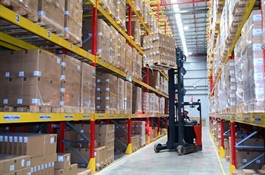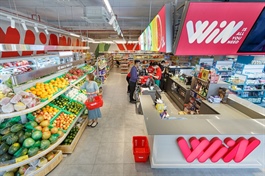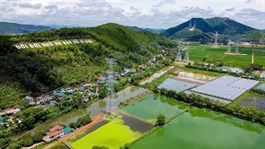Vietnam and Germany outline next steps for sustainable timber trade
Vietnam and Germany outline next steps for sustainable timber trade
Vietnam is stepping up its efforts to address the global challenge of illegal logging and the trade, one of the major causes of deforestation, which has significant impacts on the economy and local livelihoods.

Vietnam outlines status and next steps in national efforts for sustainable timber trade |
On September 11-12, the Vietnam Forestry Administration (VNFOREST) and the German Development Agency (GIZ) hosted a forum titled "Ensuring Timber Legality for Sustainable Forestry Development in Vietnam".The event served as a crucial platform to strengthen joint efforts on timber traceability and legality, review the country's progress towards implementing theVoluntary Partnership Agreement on Forest Law Enforcement, Governance and Trade (VPA FLEGT), and promote gender equality within the forestry sector.
The forum was held under the project “Support to the implementation of the FLEGT VPA in Vietnam” commissioned by the Federal Ministry of Economic Cooperation and Development of Germany and jointly implemented by GIZ and VNFOREST.
This year's forum reflects the sector's growing readiness for FLEGT licensing and to meet both domestic commitments and international requirements such as the EU Deforestation Regulations (EUDR). Traceability of each timber product, sucj as knowing that timber is legally and sustainably harvested and processed for our daily appliances (chairs, tables, paper, among others), is one key element to fight continued deforestation, protect the environment, and affirm Vietnam's reputation as one of the world's leading timber processing hubs.
At the opening of the forum, director general Tran Quang Bao remarked, “This forum provides an important opportunity for government agencies, businesses, timber associations, social organisations, local communities, and international partners to exchange views, share experiences, and propose solutions to ensure the legality of timber in Vietnam. We especially appreciate the support of the German people and government through the GIZ, in implementing the VPA FLEGT, a strong example of multistakeholder cooperation and our shared commitment to building a timber industry that is legal, transparent, sustainable, and responsible.”

Director general of VNFOREST Tran Quang Bao |
Jens Schmid-Kreye, the first secretary from the German embassy, said, “As Vietnam and Germany celebrate 50 years of diplomatic relations in 2025, this forum also reflects our strong partnership in sustainable development. Germany is proud to support Vietnam in strengthening timber legality and sustainable forestry through our joint technical cooperation to develop enabling policy frameworks, capacity development and knowledge transfer, and the development of practical digital tools.”
Meanwhile, the EU and Vietnam share a strong, cooperative relationship, particularly in trade, highlighted by the free trade agreement that entered force in 2020.
A key part of this partnership is our joint commitment to ensure the timber and timber products we trade are legal and sustainable. This is based on the VPA FLEGT, which entered force in June 2019.
The VPA forms an important part of the broader provisions in the EU-Vietnam Free Trade Agreement. It directly relates to the Trade and Sustainable Development Chapter, which includes provisions on sustainable forest management.
"Our forests are under immense pressure from climate change, facing catastrophic events like wildfires, droughts, and pest outbreaks. The greater the pressure on our forests, the more we undermine their resilience and their ability to provide the services we need. The EU is actively working to protect forests, besides following up on the VPA FLEGT especially with our new Regulation on Deforestation and Forest Degradation free products (EUDR)," said Cyril Loisel, first counsellor of the European Union delegation.
"The VPA FLEGT paves the way for a clear legality definition for timber, a broad stakeholder engagement, and understanding on due diligence and verification. These are cornerstones for being ready for all market requirements worldwide for a trusted timber industry and strong international partnerships," he said.
According to the European Union delegation, from mid-2026 onwards, the enterprise classification system should be fully functional to include all enterprises that engage in timber importing, supplying raw materials, processing, and exporting. The supporting IT system, linking customs with forest protection agencies and VNFOREST, will be crucial for this.
2026 could also be used to test the overall readiness for FLEGT licensing.
- 17:48 11/09/2025



























